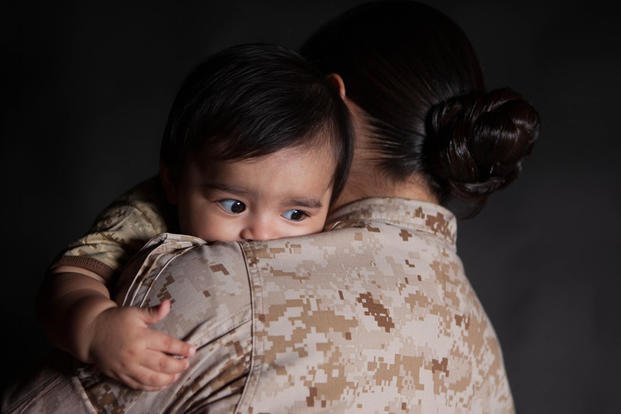The Department of Veterans Affairs will be able to invest more in maternity care for female veterans and the federal government will be required to study the health of active-duty and former service members who have had babies or are trying to get pregnant after Congress passed legislation Tuesday.
The Protecting Moms Who Served Act, passed by the House in a 414-9 vote and now heading to President Joe Biden for a signature, allows the VA to spend $15 million to improve coordination between the VA hospitals that treat female veterans and the community facilities that provide their obstetrics care.
The money also is intended for the VA to provide education and support for new moms, including childbirth and parenting classes, nutrition counseling, breast pumps and lactation support, according to the bill.
Most important to bill sponsor and Army National Guard veteran Sen. Tammy Duckworth, however, the new law will require the Government Accountability Office to study the maternal health of female veterans -- a comprehensive look that Duckworth said is needed, given the high U.S. maternal mortality rates compared with other developed countries.
"Every time a mom dies from a preventable cause related to pregnancy or childbirth, it's shameful in the richest nation on the face of the Earth," the Illinois Democrat said during an interview with Military.com. "We need to make sure to have this comprehensive evaluation of how our growing mortality crisis among moms impacts women veterans."
Read Next: One Vet Wins Big, Another Loses in 3M Military Earplugs Lawsuits
The most recent data from the Centers for Disease Control and Prevention on maternal mortality -- the number of women who die during pregnancy or within 42 days of giving birth -- shows a rate of 20.1 deaths per 100,000 in 2019, up 16% from 2018.
Duckworth noted that the rates for women of color, particularly Black females, is significantly higher than for other American women.
In 2018, the rate for Black women was 37.1 per 100,000 pregnancies, two and a half times the mortality rate of white women.
Given that half a million American veterans are of child-bearing age, the VA, Defense Department, Medicaid and private insurers need to know the complications facing veterans who are pregnant or trying to get pregnant so they can reduce pregnancy-related conditions and deaths, the bill sponsors said.
"The impact of this crisis on women veterans is not well understood," said Sen. Susan Collins, R-Maine, in a press release. "I'm pleased that Congress has passed this critical legislation to help ensure that the brave women who have served in our military receive the maternal care they have earned."
Duckworth, a double amputee who survived a helicopter crash while on deployment to Iraq in 2004, has openly discussed her struggles with infertility in the decade before the birth of her first child, Abigail, in 2014. While the VA covered the entire cost of her care and a week's worth of her daughter's, she still faced unexpected bills.
"I was a member of Congress at the time, but I remember thinking, 'What are the other women doing? What are the other women veterans doing?' in the face of medical debt," Duckworth said.
The findings of the now-required GAO investigation would have helped the VA better serve her needs as a new mom and those of other female veterans, she said.
"Within the VA, there certainly are women's health clinics ... but the program for funding maternal health is significantly underfunded," Duckworth said.
Rep. Lauren Underwood, also an Illinois Democrat, sponsored the legislation in the House. It
was endorsed by more than 150 organizations, including the American College of Obstetricians and Gynecologists; the Association of Women's Health, Obstetric and Neonatal Nurses; Women Veterans Interactive; Wounded Warrior Project; and the NAACP.
-- Patricia Kime can be reached at Patricia.Kime@Military.com. Follow her on Twitter @patriciakime.
Related: Supreme Court Denies Military Medical Malpractice Case Petition












